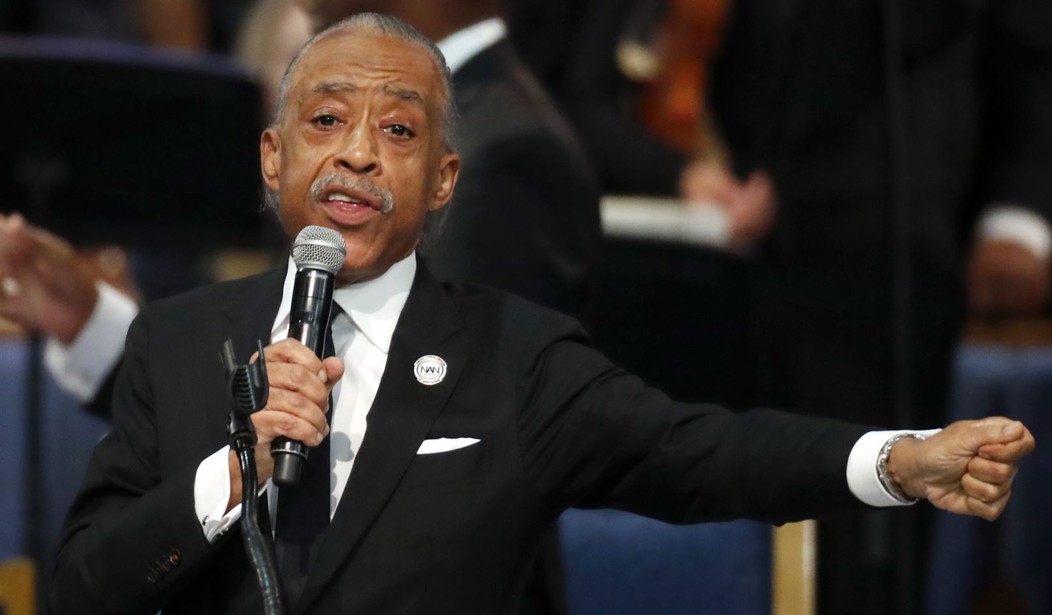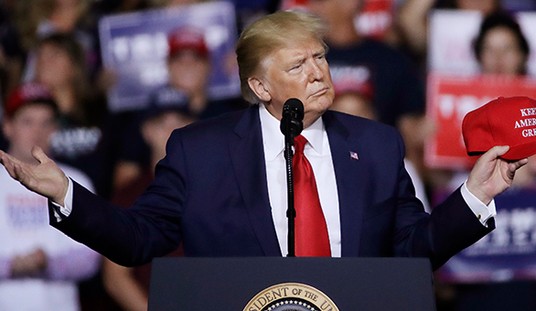Last weekend, a large number of Democratic Party Presidential candidates attended the National Action Network convocation, hosted by the "Reverend" Al Sharpton. The major topic of discussion? Reparations for slavery. Specifically, the audience and leadership pressed the candidates on whether they would sign off on legislation to convene a separate commission to looking into reparations for those adversely impacted by the “peculiar institution." They all agreed to do so, even the more-hesitant (and formerly moderate) presidential candidate John Hickenlooper, the former Governor of Colorado.
Perhaps all this political pandering isn’t worthy of our attention. After all, these presidential candidates promised to sign a bill to convene a commission—nothing more, right? It’s not as though the bill will end up on their desk as long as divided government remains the norm in D.C. But still, the fact that this issue has come up for discussion in a major political party...Seriously?
For decades, reparations was a benign talking point, another line of virtue-signaling from the academic chatterati. These “professionals” never worked a real job in their lives. They declared their express interest to undermine the United States from the isolated safety of their ivory towers. To the rest of us little people, their reparations talk was fundamentally silly. Few people even noticed. Today, this silly idea has become a serious concern, a point of departure for one of the mainstream political parties in the United States. We need to discuss this so that we can dispute and dismiss it effectively.
The first question that should come to everyone’s mind: who should get reparations? All the slaves, now former slaves, have all passed on. Where should any funding go? Consider the contrasting reparations issue with the Japanese-Americans interned during World War II. Within years, a movement for reparations followed. Presidents Ronald Reagan and George Bush signed off on explicit legislation directed to Americans whose property had been unfairly taken or forced into sale. Regarding the slavery issue, a contentious matter that was once a dark blight on our nation’s otherwise bright history, the issue of “paying back” is more complicated. Who today was harmed by slavery then? Most black Americans today have a tenuous connection with an enslaved ancestor. Many more Americans of African heritage or descent have no such connection. On the surface, ultimately, let’s call this demand for material retribution what it really is: outrageous!
Recommended
However, if liberals and race-baiting interests insist on reparations, then let's talk about this. What would widespread reparations really need to be? Will there be a discussion on reparations to the descendants of white slaves? Yes, they existed, they worked in different levels of involuntary servitude in the American colonies. Check out White Cargo or do a casual Google search for more information.
What about for the hundreds of thousands of (white) men who died on fields of battle to end slavery. Where are their reparations? OK, they all died. What about for their children, or the extended families of these men who died so that men would live free on American soil? Many children lost their fathers on those fields. They sacrificed a great deal, too. They lost so much because of slavery.
Are reparationists going to confront the American Indian tribes which had enslaved black people, including tribes which insisted on holding onto black slaves even after the Civil War ended? As one of many political inconvenient truths about the slave trade, American Indians enslaved black people, sold them, and stole the fruit of their labor. It’s astonishing to learn that many of the native groups refused to give up their slaves even after the passage of the 13th, 14th, and 15th Amendments!
Will that politically incorrect history bother the “reparations raiders”? That’s nothing compared to the long-suppressed yet very true history of the black—yes black—slave owners which emerged throughout the United States up to and throughout the Civil War. The first slave-owner in the colonial North America was Anthony Johnson, a black indentured servant who worked for his freedom from that bond. He became a slaveholder and plantation-owner himself. He even sued in court for the right to own a black man! Blacks enslaved thousands of other blacks in the United States, and they even helped bankroll the Confederacy up to its defeat at Appomattox Court House. Most people still don't know about black slave owners, including history teachers and professors. Will reparations seekers pursue the descendants of those slave owners?
Why not make demands on African countries, too? They enshrined and dispersed the slave trade long before Europeans arrived. Will reparations extortionists extend their demands to Black Lives (Don't) Matter, whose racial hatred and violence burned down millions of dollars’ worth of black capital? Remember Ferguson? Much of that violence sprung out of the poisoned well of institutionalized victimization.
Besides all of this, former slaves already received reparations. After the civil war, black freedman received 40 acres and a mule because of "radical" Republicans, whose party had opposed slavery from their inception. Those same reparations were later denied to black slaves when Democrats came to power in Washington, D.C. and throughout the Post-Bellum South. In fact, it was the Democratic Party that renewed the push for involuntary servitude in the early 1800s. Five years before the outbreak of the Civil War, the Democratic Party was talking about allowing the re-importation of black slaves in the United States, which had been banned after 1808. When will the Democratic Party draw from its own campaign coffers and start paying back all the harm that they perpetrated against black people? If people are clamoring for reparations for slavery, they should pound on the DNC's door and shout "Pay Up!"
What a strange irony: Democratic Party Presidential candidates want to enact reparations, but it was their party that reinvigorated the slave trade, that made a business out of stealing labor from working people and giving it to those who do not work. For those clamoring for reparations, be careful what you wish for!

























Join the conversation as a VIP Member